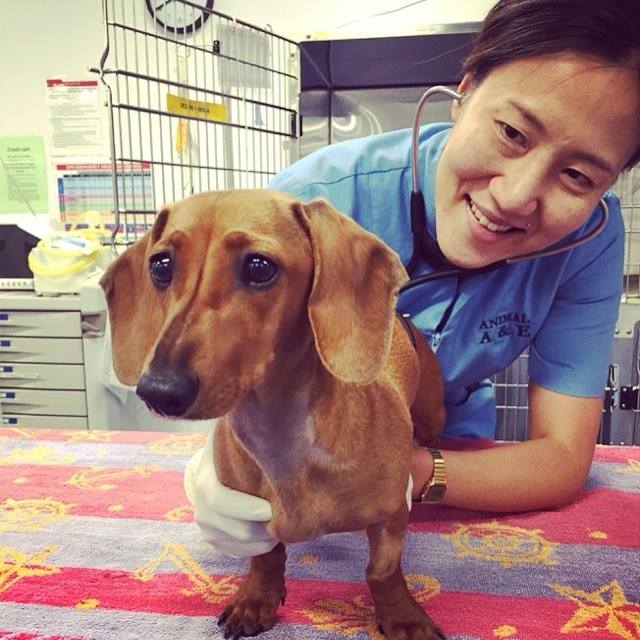
The CARE your pet requires
Marijuana is one of the most commonly used recreational drugs worldwide and is also known by a variety of other names such as ‘weed’ and ‘pot’. Marijuana comes from the plant Cannabis sativa and the term ‘marijuana’ refers to the various parts of the plant such as the stems, leaves, seeds and flowers.
Apart from its use as a recreational drug, there is active ongoing research into the potential medicinal uses of marijuana for the management of conditions in humans such as chronic pain and multiple sclerosis. In fact, marijuana has already been approved for medical use in some places around the world. Unsurprisingly, the increased use of marijuana in humans has also resulted in an increasing number of animals being presented to veterinary clinics suffering from marijuana toxicity after accidental exposure to marijuana products.
This article will describe the common methods of intoxication and clinical signs seen in patients. We hope that readers will be able to better recognise early signs of intoxication and seek early medical intervention for their pets in the event of intoxication. If you believe your pet has ingested a drug, you need to contact our 24 hour vet Melbourne.
Commonly Encountered Forms of Marijuana
- Unprocessed plant parts (leaves, stems, flowers, seeds)
- Marijuana or hash cookies, brownies, candy
- Marijuana (THC) in butter
- Marijuana in cigarettes or ‘joints’
- Marijuana in modified pipes or ‘bongs’
Why is marijuana toxic?
The major active component in marijuana is delta-9-tetrahydrocannabinol (THC) and can be found in varying levels throughout the different parts of the plant. Intoxication may occur via various means such as ingestion of a marijuana product (most common) and inhalation of toxic smoke. Once absorbed, THC is rapidly distributed around the body and exerts its toxic effects by binding to specific receptors within the brain and the rest of the body. While the effects of THC are yet to be fully determined, studies have found that clinical signs are related to the amount of marijuana ingested, and intoxicated animals often present with signs such as altered mentation or gastrointestinal signs such as vomiting.
- Depression, tremors, coma
- Ataxia (unstable gait/walk)
- Disorientation/Hyperexcitability
- Hypersalivation
Cardiovascular Signs
- Bradycardia (Slow heart rate)
- Tachycardia (Rapid heart rate)
Metabolic Changes
- Hyperthermia (High body temperature)
- Hypothermia (Low body temperature)
Gastrointestinal Signs
Making a diagnosis
A diagnosis can usually be made based on history provided by owners, known or witnessed ingestion of marijuana and suggestive clinical signs. However, in the event where there is no known exposure, a presumptive diagnosis can still be made based on clinical signs and resolution of clinical signs after treatment. However, a definitive diagnosis can be obtained from analysis of stomach content or urine of affected animal if required. Our pet hospitals stock urine identification tests that aid in the diagnosis.
Treatment
There is currently no specific antidote for THC toxicity. Treatment consists of supportive care and symptomatic therapy. Most pets will need to be admitted to our veterinary hospital.
In cases that present acutely after ingestion, decontamination via the induction of emesis (vomiting) may be attempted if patients are still conscious and alert. In severe cases however, patients may present comatose and as such would require more aggressive measures such as gastric lavage (emptying) and enemas (manual emptying of rectal contents) to achieve rapid removal of marijuana from the body.
In addition, other supportive measures such as activated charcoal, muscle relaxants, ventilatory support (via the provision of oxygen), intravenous lipid administration and constant monitoring of the patient’s body temperature may also be required. Our Emergency Centres are open 24 hours / 7 days a week. Our intensive CARE units always have emergency vets on shift.
Prognosis
The prognosis for affected patients is generally optimistic. The majority of cases tend to recover within 5 days with no long-term adverse effects.
In severe cases however, recovery may be prolonged and complications such as death has been reported in cases of marijuana butter ingestion.
My pet has eaten marijuana! What should I do?
- Stay calm and seek immediate veterinary attention for your pet
- Give an honest history to your veterinarian, all details provided to us are kept strictly confidential
- Do not attempt to induce vomiting or treatment at home
- Making an unconscious animal vomit may cause it to aspirate the vomit and result in secondary aspiration pneumonia
- Intoxicated animals can have an altered mentation and turn violent or aggressive without warning and cause serious injury to both itself and you
- Attempting home treatment wastes valuable treatment time and prolongs the duration of your pet’s exposure to THC and increases the risk of potential complications
If you have any questions, please phone our emergency centres: Essendon 03 9379 0700 or Point Cook 8368 7400.
Our Centres are for Animal Referral and Emergency.
We are Always Open, We Always Care
References
- Meola SD, Tearney CC, Hass SA et al. Evaluation of trends in marijuana toxicosis in dogs living in a state with legalized medical marijuana: 125 dogs (2005-2010). JVECC 2012;22(6): 690-696.
- Fitzgerald KT, Bronstein AC, Newquist KL. Marijuana poisoning. Topics in Companion Animal Medicine 2013: 8-12.
- Osweiler GD, Hovda LR, Brulag AG et al. Marijuana. In: Osweiler GD, Hovda LR, Brutlag AG et al (eds). Blackwell’s Five-Minute veterinary Consult – Clinical Companion: Small Animal Toxicology. Blackwell Publishing Ltd, Iowa, 2011: 224-229.
- Volmer PA. Recreational Drugs. In: Peterson ME, Talcott PA (eds). Small Animal Toxicology. 2nd Edn. Elsevier Saunders, Missouri, 2006: 293-295.












